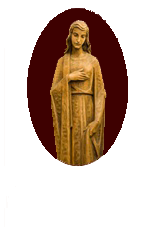This Week Letter – July 10, 2016
Dear Parishioners and Friends,
St. Luke is the author of the New Testament that is most often associated with mercy. He was after all a doctor, so he witnessed human suffering every day. His Gospel talks about suffering often. It talks about healing of a mute man (Lk 11, 14), a woman with a crooked back (Lk 13, 10-16) and the mother-in-law of Simon Peter (Lk 4, 38-39). He also talks about an exorcism of demons from the possessed (Lk 4, 33-35).
However, the most beautiful pages of his Gospel’s parables show God’s true goodness. Among them: the lost sheep (Luke 15: 3-7); of the drachma (Luke 15 : 8-10) ; especially about the prodigal son (Łk 15, 11-32). His Gospel ends with two special pieces: the prayer of Christ on the cross for His persecutors ( Lk 23 , 34) and the promise of salvation given to the thief dying at Golgotha (Luke 23 : 39-43 ).
The common denominator of all these passages is the mystery of mercy. Luke’s representation of God is not only His being capable of forgiveness, but even showing initiative. It is He who waits patiently for the conversion of His children. His love is not so much a consequence of human repentance. It precedes it.
St. Luke wrote his work for the followers of Christ, coming from outside the circle of Judaism. That is why so much emphasis is placed on the universalism of salvation, that everyone has a chance, if they repent and return to the ways of God.
Today’s Gospel pericope is in line with the Good News of Mercy. Here we encounter the Samaritan, who leaned over the man who was attacked. However, in this Sunday’s Gospel passage we discover a completely different perspective. Mercy is not only an attribute of God, but also the duty of every Christian.
Mother Teresa met with incomprehension among those whom she served. When she leaned over the lepers, a silent question followed: how is it possible that a person can selflessly serve others?
Among the many allegations directed at Christianity, one is that, even if we can afford some heroism, self-interest is always it’s foundation. But the reward for good is to be done for salvation. But there were great saints, who assured that if God does not exist – they would not change their behavior, because great happiness is hidden in service to others.
Only forgiveness and leaving behind all selfishness makes a man free and joyful.
Save the date for our parish picnic at Bunker Hill in Niles on Sunday, August 28th. I invite you not only to come to the picnic but to volunteer in preparations for it. Let God’s blessings fall upon those who selflessly help others. God Bless!


